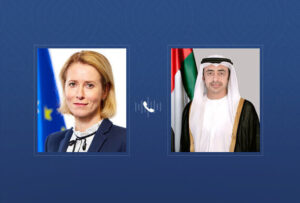Spain, France and Portugal reach gas pipeline deal

Brussels, The Gulf Observer: Spain, Portugal and France reached a deal on Thursday (20 October) to establish a submarine “green corridor” between Barcelona and Marseille to transport natural gas, and, at a later stage, green hydrogen.
The announcement comes after months of failed negotiations to revive the MidCat gas pipeline connecting Spain and France through the Pyrenees.
So far, France has been reluctant to relaunch the MidCat pipeline the 1250km project was cancelled after regulators in both countries rejected the costly infrastructure in 2019.
But Paris has now agreed to the new “Green Energy Corridor,” which would substitute previous plans for the MidCat, and increase the connection between the Iberian peninsula and central Europe.
The new pipeline, which will probably benefit from EU funds as well, is also backed by Germany, Europe’s biggest economy and largest gas consumer.
“This is very good news for Spain, Portugal and France, but especially for Europe,” said Spanish prime minister Pedro Sánchez ahead of the summit meeting in Brussels.
The project would help to respond with “solidarity” to the demand for alternative gas supplies from other EU countries which are facing “Putin’s blackmail,” he added.
Currently, Spain accounts for about 39 percent of the total LNG regasification capacity in the EU with six mainland LNG terminals for processing gas arriving by sea.
But the interconnection with Europe remains low as the French and Iberian markets are only connected thanks to two low-capacity pipelines.
“These hydrogen infrastructures must be technically adapted to transport other renewable gases, as well as a limited proportion of natural gas as a temporary and transitional source of energy,” reads the joint paper issued by the three countries on Thursday.
But the timeline for its completion is still unclear.
Meanwhile, more than 35 LNG vessels are stuck queuing near Spanish coasts unable to unload due to the overcapacity of terminals, Reuters reported.
“Europe needs interconnections because the situation is dramatic,” an EU official said.
The deal also includes provisions to develop electric connections further. The three EU leaders agreed to create “new electricity interconnection projects” connecting France and Spain, in order to achieve “an electrically-connected Europe,” they said in a joint statement.
Sánchez, Portuguese prime minister Antonio Costa, and French president Emmanuel Macron will meet again in Spain in early December when they are expected to work further on details about the volumes, division of costs, timeline, and sources of financing.
The €220 REPower EU programme as well as the loans still available under the EU’s recovery and resilience facility could be used to develop infrastructure projects to reduce Europe’s dependence on Russian gas.


